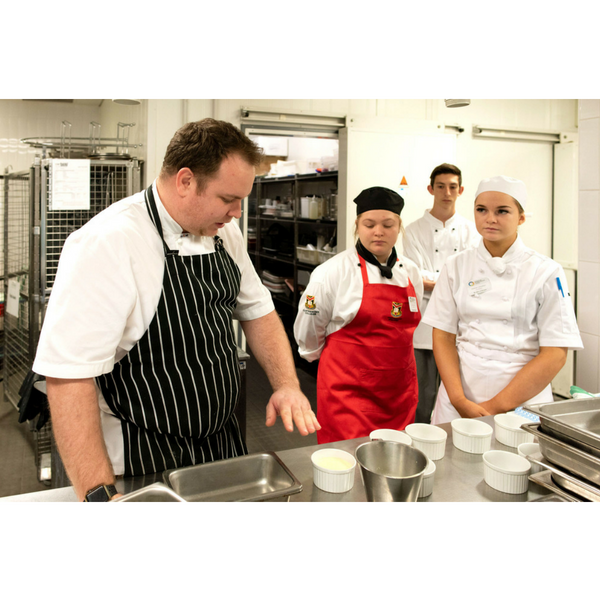
An estimated 23,000 workers – that's the number of new employees the Queensland tourism industry will need by 2020 with a very diverse range of skills, especially Vocational Education and Training (VET) and practical skills.
Queensland Tourism Industry Council (QTIC) Chief Executive Daniel Gschwind said the tourism industry was one of the fastest growing sectors globally with labour-intensive businesses, ever in the face of rapid technological change.
“Tourism in Queensland is expected to grow by 4 per cent annually until 2019-20, and by 3.9 per cent over the next 10 years, which is a faster growth rate than the rest of the economy,” he said.
“So, our greatest challenge in a growing, tough international market is to remain competitive.
“We also have to ensure our people have the best and most relevant skills possible to deliver quality experiences in a demanding consumer-driven market.”
As an early technology adopter, the Queensland tourism industry relies on the skills of its workforce to remain at the cutting edge of innovation in order to implement practices like new online consumer engagement and payment methods.
“Tourism is also at the forefront of new sustainable technologies, including electric vehicles in transportation, and responsible infrastructure where VET and practical skills can be successfully utilised,” Mr Gschwind said.
EarthCheck CEO and Founder, Stewart Moore, noted that a key theme emerging from global research is the effect of technological disruption on the tourism workforces of the future.
“The speed of technological change, including the increased use of social media for tourism marketing, tourism systems and other infrastructure will result in the need for continual upskilling across the industry and this is why Gen Y workers are vital to the industry due to their familiarity and entrepreneurial abilities in using technology to market and promote tourism to international audiences,” Mr Moore said.
Mr Gschwind said the Queensland tourism industry contributes $25 billion in expenditure to the state’s economy and sustains 216,700 Queensland jobs across 54,000 businesses.
“Tourism employers are looking for engaged, consumer-focused and innovative staff who want to make a difference in one of Queensland’s great industries,” he said.
“Tourism is not only a growth sector, but it also offers employment opportunities that have positive attributes for employees seeking transferable skills, international mobility, flexible work arrangements and environmentally responsible work opportunities.”
QTIC continues to promote the significance of VET and practical skills through its many Workforce Development programs, with the aim of effectively connecting training providers, employers and employees.
National Skills Week (27 August – 2 September 2018) is Australia’s premier event for showcasing VET and practical learning opportunities and the valuable career paths they can lead to.
To find out more about VET opportunities and how they could lead to a career in tourism, or to find a National Skills Week event near you, visit www.nationalskillsweek.com.au
PHOTO: The Salute to Excellence Awards is just one of the many workforce development programs run by QTIC. 2018 Salute to Excellence Awards Cookery category finalists Ellie-Rose Priest, Van Hardie and Jestine Llewellyn get a crème brûlée tutorial from judge and chef Josh Lawson.



